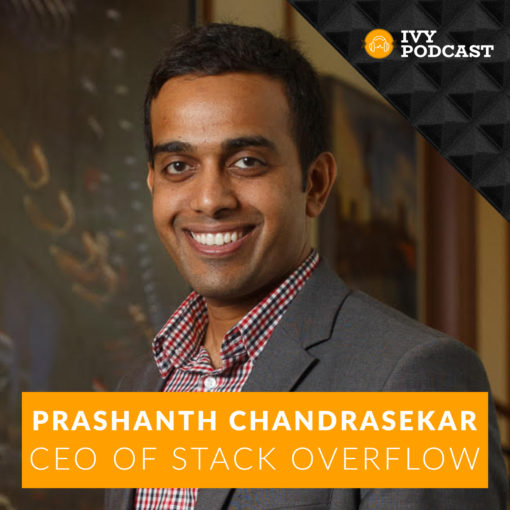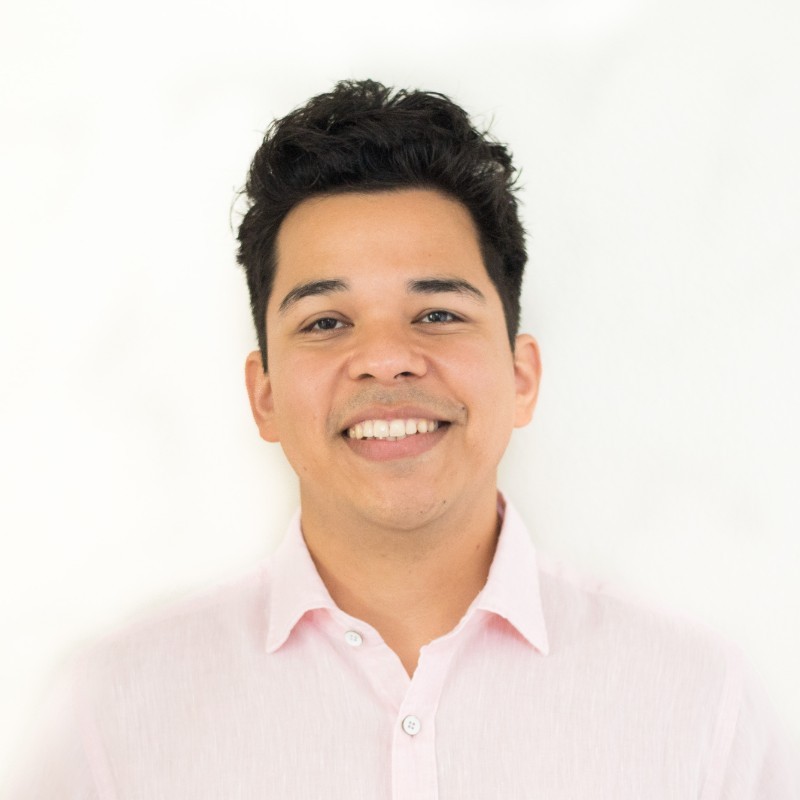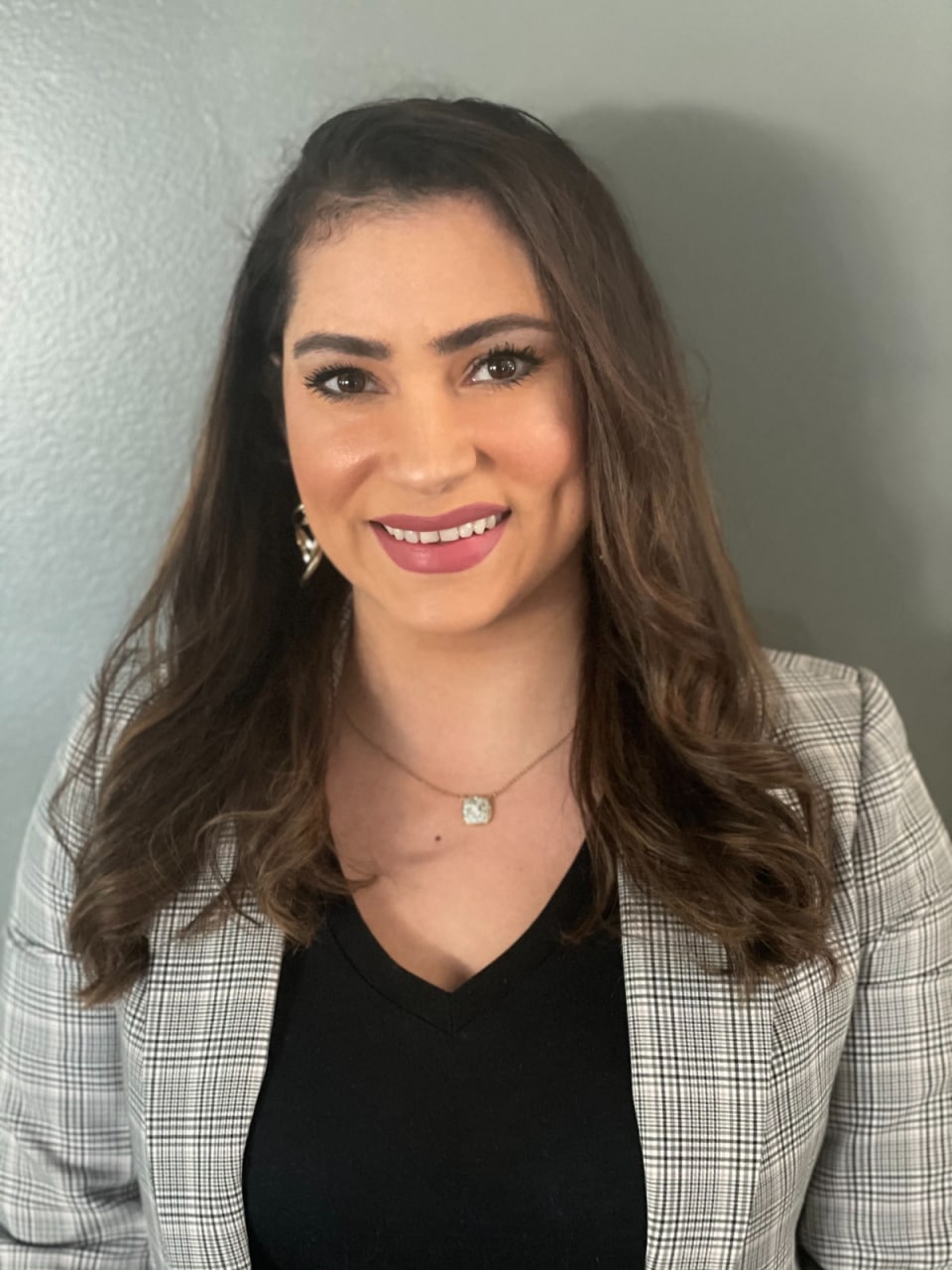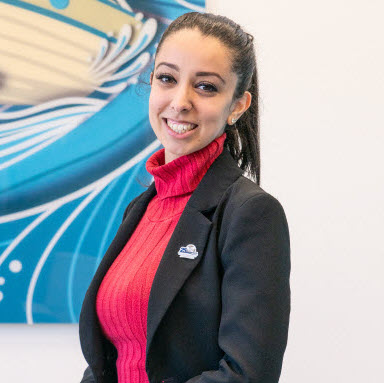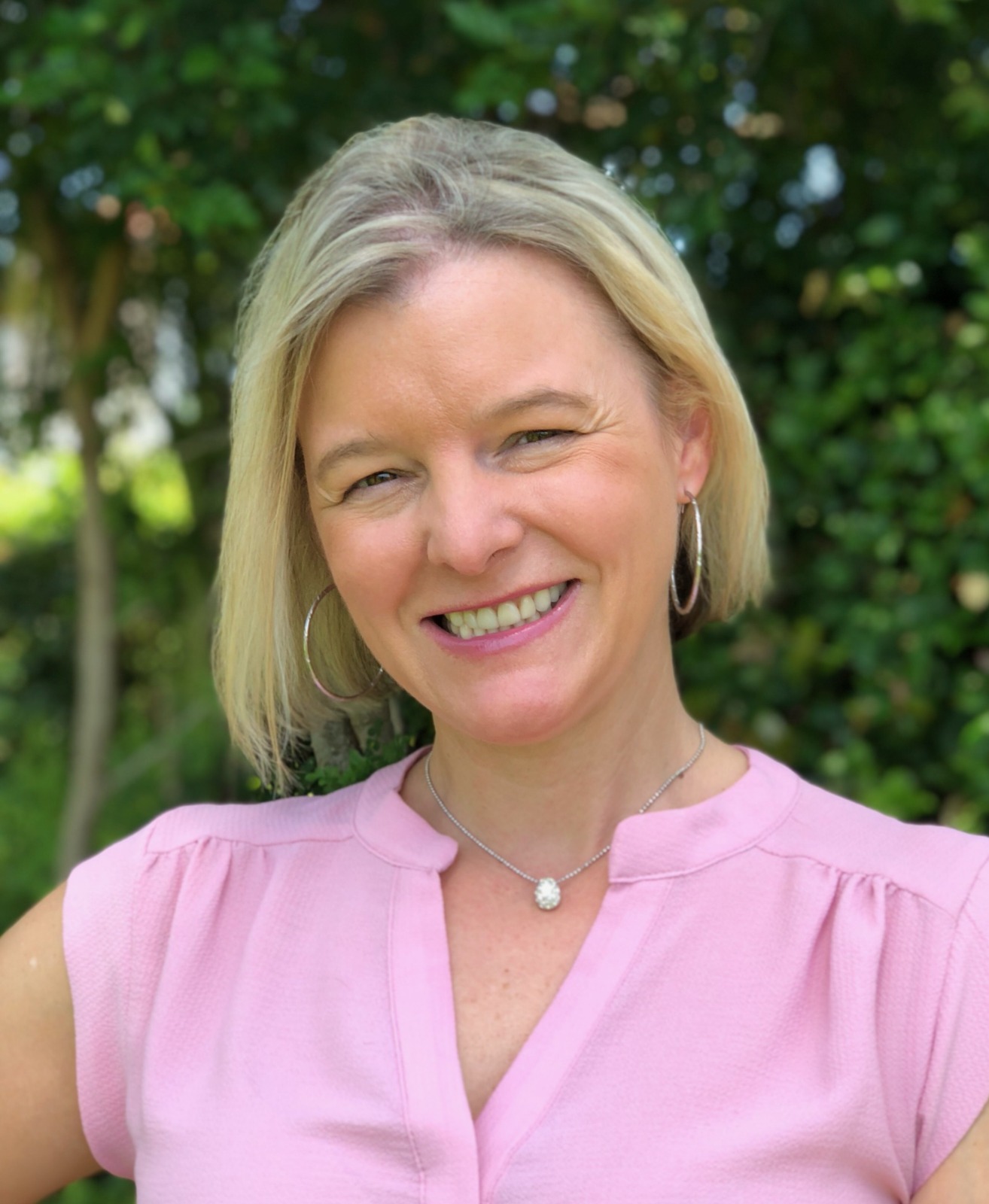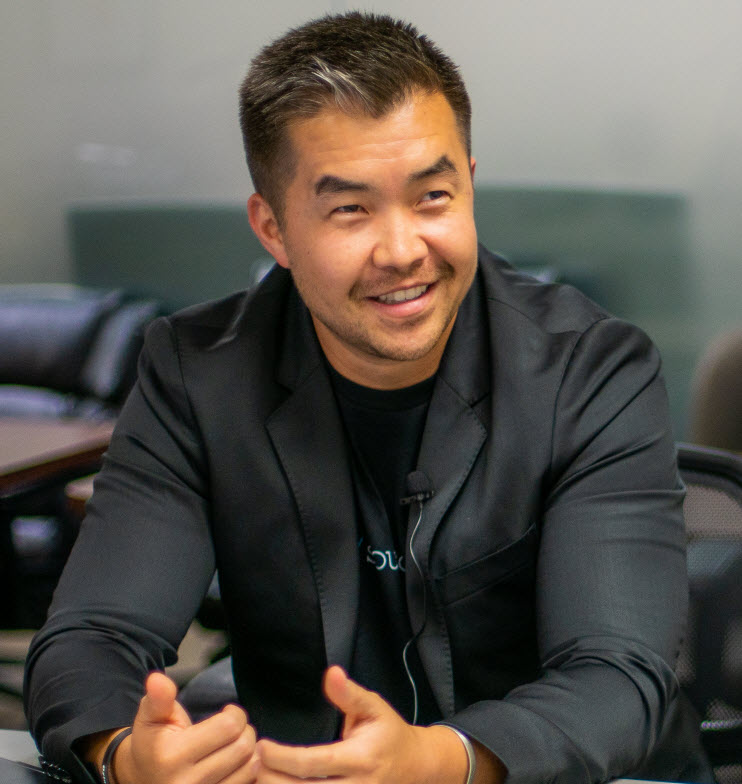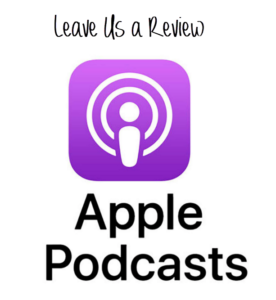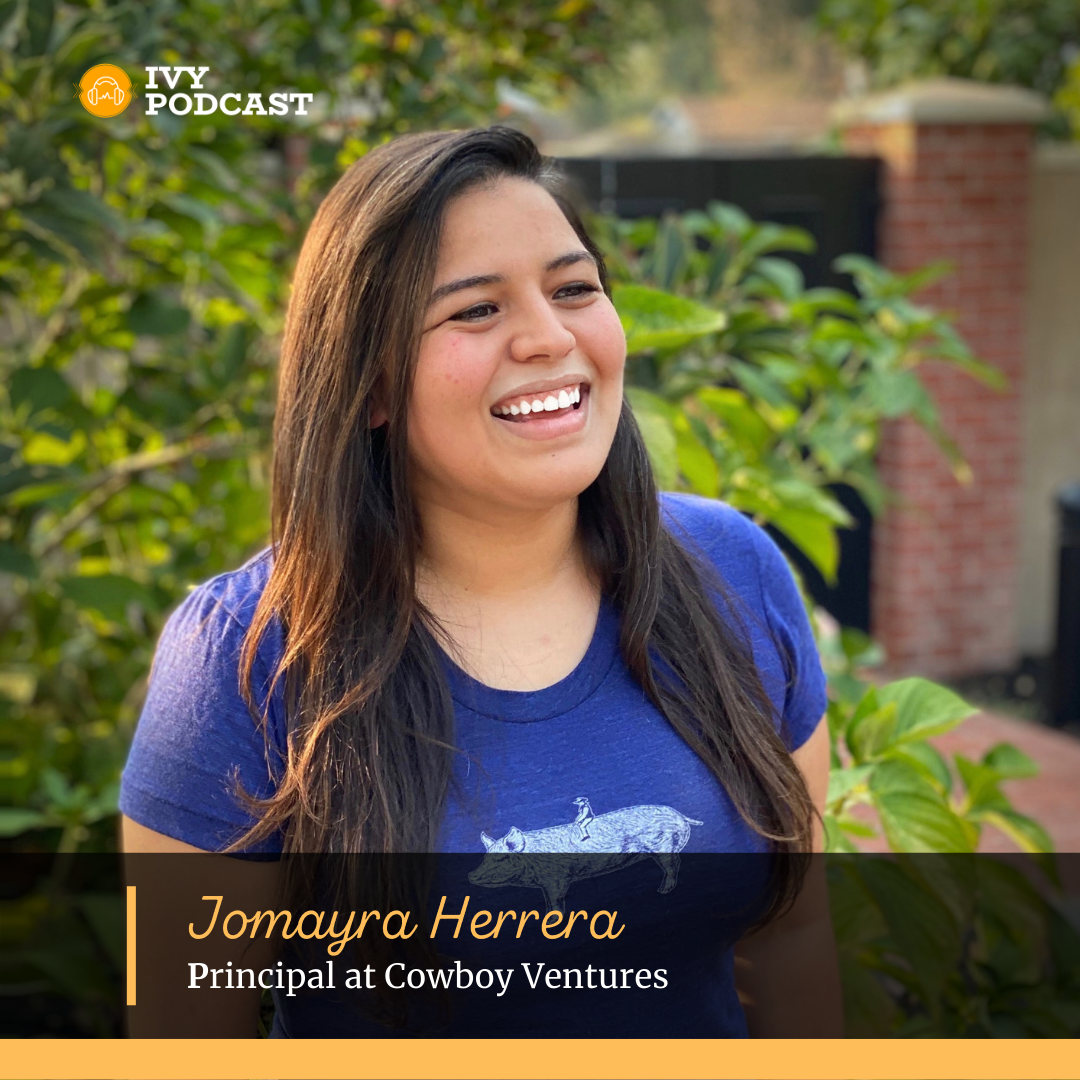
Jomayra Herrera is a principal at Cowboy Ventures, a seed-stage focused venture firm where she focuses on investing in the future of work and edtech companies. Prior to Cowboy, she spent nearly 3 years as an investor at Emerson Collective. As an early hire on the investing team, she played an important role in building key investment theses, creating internal processes, and helping to grow the team. During her time there, she led the firm’s investments in companies like Handshake and Career Karma. Before Emerson Collective, she worked at BloomBoard, an early-stage education technology company, where she focused on customer success and sales.
Episode transcription:
[00:00:25] Jomayra Herrera: Hi, I am Jomayra Herrera. I am a Principal at Cowboy Ventures, and we are a seed stage focused fund based in the Bay area. [00:00:33] Jahn Karsybaev: Jomayra, thanks so much for finding time joining us on the podcast this afternoon. You're joining us from Orlando, right? [00:00:40] Jomayra Herrera: That's correct. Sunny Florida. [00:00:42] Jahn Karsybaev: Awesome. Yeah, we'll be serious, South Florida. Tell us a little bit more about yourself, your background. And then I want to spend some time talking about where you currently wake you up. [00:00:53] Jomayra Herrera: Yeah, of course. Well, I suppose my background actually starts here in Orlando, Florida. It's a little bit full circle. I was born and raised in Orlando. And as you can imagine, especially when I was born, there was no conversation around tech venture capital or startups where I was, but I was lucky enough. I was the first in my family to go to college and I was lucky enough to go to school in the West Coast, in the Bay area. And through that experience, as someone that was going to be first in her family to go to college, I was like, okay, I'm going to be a doctor, a lawyer, an engineer. It has to be one of the three. I know nothing about science or math. And so I was like, lawyer. I also enjoy arguing, so it felt like a good fit, and so I did everything you're supposed to do to get prepared for and go to law school. I did the internships. I prepared for the LSAT and when the morning of the ALSAC came, I just realized that when I thought about where I was spending my time, it was never really thinking about being a lawyer or I didn't really have any passion around that career. When I thought about where I was spending my time, it was always in schools, working with kids, and primarily K-12 schools. And I promise I will get to the point of how I ended up becoming an investor, but I realized that what I cared deeply about was economic mobility and education. [00:02:16] And so I ended up going to graduate school for education, and during that time period, I really focused on adult learning and really childhood learning and just fell in love with the idea and the mission of reducing inequities for people all across the board. And after graduate school, I started my career on the operating side, selling software to school districts. And anyone that has done that knows that it is very challenging. You learn a lot, you learn a lot about how to hustle, and you learn a lot about what not to do. but I really enjoyed that experience. And one of our angel investors happened to be Steve Jobs’ widow Laurene Powell-Jobs, through her family office, Emerson Collective. And so through that relationship, I just got to know the organization better. And then I ended up joining their first investing hire, I didn't know anything about venture capital other than having worked at a venture backed startup, but I learned a lot on the job. And we went from effectively, like a very, very small team of just a few people to about 20 investors. [00:03:19] By the time that I left and we became a multi-asset family office, and just by nature of my background, I spent a lot of time investing in education and future work-related companies. And I know like the story's not rambling, but I'm almost done. [00:03:34] Jahn Karsybaev: It's very interesting. [00:03:35] Jomayra Herrera: Towards the end of my time there, I just realized that where I wanted to be spending a lot of time within investing was at the earliest stages, right? Like when founders are just figuring things out, when things, when the DNA of the organization can still be molded. And so I joined Cowboy Ventures about a year and a half ago to do exactly just that. We focus on seed stage investing. We are generalists investors, but again, by nature of my background, I focus a lot around investing in education or learning related solutions and feature work related companies. And so that's a little bit of my background and how I got here. It's definitely non-conventional. [00:04:16] Jahn Karsybaev: Right, right. Wow. What a story, what a great background. And thanks for sharing that with us. Very interesting. And my path was a little bit different getting into, I'm not part of, you know, venture capital or anything like this, but I do angel investing myself into startups, but my path was a little bit different where I almost fell into that by nature, being a founder of my own company, having failed several companies with one exit, it was also taking that experience and saying, how can I then help other founders maybe avoid the mistakes that I've made and learn from that experience. So that's pretty interesting. And thanks for sharing that. As far as Cowboy Ventures and the kind of fund that you are part of now, you've mentioned you guys invest into that kind of future for the education learning sector. Tell us a little bit more about that mission. What type of problem are you guys looking to solve through these types of investors? [00:05:11] Jomayra Herrera: Yeah, so I guess the first thing I will say is Cowboy Ventures as a firm is a generalist firm. So it invests in all sectors and categories, and we ended up messing in everything from infrastructure software to financial technology, to education technology, and everything in between. And so. Each of my teammates focuses on specific areas or a specialist in specific areas. I just happen to focus quite a bit on education and future of work. And so I'll speak specifically to where I spend a lot of time, as what we've known for a long time. And it's especially true in the last year, is that the way we think about work for most people is going to dramatically change. I've always said that it's almost like the future of work is short-term over-hyped, but long-term under hyped. Like they're real tectonic shifts that are going to be happening across the board when it comes to how we think about work. And so, as a result of that, there's going to be a whole new set of infrastructure that needs to evolve to be able to support that evolution, and so one recent investment that we made and we announced just last week is in a company called Contra and they're building a LinkedIn for freelancers, or non-traditional or what they're describing as independent workers. And so for them, the way they're thinking about it is like there's over 50 million freelancers just in the United States. And that number has spiked dramatically in the past 12 months. And those freelancers, like right now the way to find work for most of them, it's just through word of mouth. And if you don't already have a set of a network of people that you can rely on, it's really hard to find that access to work and have some level of stability when it comes to your income. And so what Contra is trying to do is, Hey, here's a place where you can host your professional identity and also, host your network. Span your network and then find vetted opportunities that fit what you're looking for, and so they just launched last week, already have hundreds of thousands of people that have signed up just indicating the demand for it. But that's an example of a type of company that is helping to support where I think the world is going when it comes to the future of work. [00:07:19] Jahn Karsybaev: Wow. That's super exciting and definitely makes sense. I can resonate well, especially with the current market everyone's shifting remote. I've been reading a lot about the contingent workforce on the rise, you know, the gig workers that consultants that contractors, you know, I've been there myself and I think services like this definitely makes sense. As far as that trend being on the uprise and making investments into platforms as such that we create those opportunities. For the contingent worker, to get an opportunity, to be exposed to new opportunities versus the traditional word of mouth. So to say, I think that's, that's very exciting. That's awesome. Well, that's congrats on that success. So aside from that, what else excites Jomayra, what are you passionate about? What are the different trends that you are observing these days that you see will be kind of the next trend? So to say, what are you researching? I guess to the extent that you can share, what are you looking to invest in further? [00:08:18] Jomayra Herrera: Yeah. So I think it's of no surprise that COVID was unprecedented. I mean, I don't think anyone expected to be in a global pandemic, and what has done, it's basically accelerated trends that were already happening, but has now shortened the timelines. Dramatically insignificantly. And so areas that we're looking for, areas that we're super excited about are ones that are probably going to be of no surprise to others. But how do you think about improving access to healthcare and improving? Not just the quality, but also improving the affordability. And the access. How do you think about improving access to online learning in particular? What do you think about the new wave of e-commerce and how do you think about evolving supply chain as like the rise in e-commerce is happening? [00:09:08] And so it's a lot of things that I would describe are. We're already happening, but just accelerate in this time period in terms of consumer behavior and consumer adoption. And so the things that I would say we're really excited about are all of the things that we were doing either in person or manually before or off like off platform, those things are probably going to go online in some way, shape or form. Not all of them. There are some things that quite frankly, it's better to be done offline, but a lot of the things that we were doing before we're going to go online and, and so there is still a huge need to create that infrastructure for those things. The other thing I will say is we're also pretty excited about some of the changes that are happening in, in mostly regulated markets. So like financial services, healthcare and education, like highly regulated markets. Most people have been scared about them in the past, but now it's finally to the point of there is a degree of consumer willingness and consumer adoption and increased budget, to help digitize and move towards software in those areas. And so that's opening up a ton of opportunity, and we're seeing that across the board, even within our portfolio companies and other companies that we're seeing arise. And so, I think these are areas that a lot of people are really excited about and ones that we're definitely spending time on. [00:10:31] Jahn Karsybaev: Well, that's very exciting. And, you know, with the trends that you had mentioned, especially in this highly regulated markets, we see a lot of translations, you know, with Bitcoin Navarro said it's an exit from the, you know, the financial industry. And one of the things that I've been going on in terms of the education, the healthcare sectors, absolutely so much opportunity out there, especially with everything shifting to that. Virtual works work environment. I think it just opens up a lot more opportunities from that standpoint. So definitely thank you for sharing some of the insights that you were exploring further. I want to shift topics a little bit, go to more of a kind of putting yourself in the shoes of the startup founder. [00:11:13] And I advise a lot of startups from the technical standpoint in terms of technology stack, whether it's choosing the right methodology, infrastructure, all of that great stuff. Right. A lot of questions were a lot of things that we ended up talking about overall that initial traction for the startup. And for those founders and startups, that really lack that initial traction. So to say, because we all know it's, you know, it's very difficult. It's very hard to find that product market fit that really, really is intended to work the way it should. So for those that really lack that initial hyper-growth or initial traction. [00:11:55] From the startups that you talked to, I'm sure, on a daily basis, share with you any recommendations that you provide in a sense to be able to, whether to focus on that growth initially, or really do go the fundraising routes. And how do you overcome that barrier? That I hear on a daily basis from entrepreneurs that say, you know, I'm limited in resources to be able to attract certain customers, but also that becomes a red flag for the industries, so just kind of that balancing act is curious to get your thoughts on that. [00:12:30] Jomayra Herrera: My initial reaction is that there are two reasons for why you might lack traction. And it's important to distinguish between the two, there's the one camp where it's like, we have a vision we're really excited to build this up, but we need the resources to do it and also to attract the right set of customers. In that case, you just need to find the right investor that is investing super early to help give you that initial jumpstart. So that might be a seed investor. It might be a few angel investors. That means these are strategic for you. It might be a seed investor. So for example, at Cowboy, the last few investments that we've made have been in companies that only have our wireframes, and maybe they have some degree of customer discovery. The founders really understand the problem, but the traction is still really early. They might have built a list, but it's super early, but that's our job as early stage investors is to take that risk. [00:13:26] And so for that camp, it's just about finding the right investors that are used to making early stage bets, then there's the other camp we've been building. We've been trying, but there isn't market demand for what we're building. In which case you have to take a step back and rethink what you're offering, what you're building and making sure you're building something that the market really wants because no amount of capital is going to change market demand, right? Like if you have $10 million in capital, but you're building something that people don't want, like no amount of cash is going to change that. And so in that camp, what I would say is like, don't raise capital, go back to the drawing board and figure out how can we continue to iterate and ask questions and build something that once you do get the cash. [00:14:10] Jahn Karsybaev: Yeah, very interesting. And that's a great analogy from kind of those two perspectives. And from the first kind of the first point that you made, where an example where you guys invest into companies that, you know, don't probably don't even have a product yet their frames and just some mock-ups and ideas. Tell us a little bit more about that process aside from all the research that you guys do internally for that market, for the product market fit as well. What else kind of is one of the key ingredients that really make you guys think. Let's take that risk. Let's make that bets because, you know, as an early stage investor, you always in that kind of balancing act, whether you make that bet or not, bear with us a little bit more about that kind of, how do you increase your chances to kind of improve your batting average? [00:15:00] Jomayra Herrera: Yeah, so there's a few things that we think about. One is obviously the founding team, right? Is this a team that has, what I describe is an earned secret about the market? So by nature of where they've worked or what they've done or what they've experienced, have they earned a secret about the market that gives them a competitive advantage. And so part of it is just the founding team and their passion and their knowledge and skill set in that market. And so that gives us and inspires a set of confidence. The other piece is in terms of, even if it's just Mo mock-ups or wireframes or prototypes or whatever it might be like, have we shown this to potential customers? What's their reactions, like, do we have a wait list? Right? Like, do we have pent up demand for this type of product? And like, do we have signals around that right now? The other thing that we do is we obviously talk to people that might be potential customers. So on the enterprise side, we'll talk to people that might be potential customers and say like, What do you think of this product? Would you use it? How much budget do you have to spend on it? Like what's the sales cycle, like, and that starts to give us some confidence on whether or not this is a bet we want, we want to make on the consumer side. It's a little bit more of a bet because consumers are traditionally finicky. [00:16:08] You don't know what's going to take off but that's where we rely more on our market knowledge, our experience as consumers. And then also speaking obviously to potential consumers of that product and understanding whether or not there is going to meet demand. Those it's always tricky, right? Because if like, If I think 10 years ago when Airbnb was rising, if I asked you, Hey, and this was before Airbnb, would you stay at a stranger's house and pay like $30 to like sleep in one of their rooms? You'd probably be like, no, that's really weird. Why would I do that? and similarly, like if I was a host, like, would you let a stranger, a random stranger staying in your house and just like, put your house on a platform. They'd be like, no, that's crazy. But. You never know what consumers want and what they're craving for. And so obviously Airbnb now is a massive company, so there is always a degree of serendipity and just luck to all of this but we try to do brisket as much as possible, but really understanding the core user, the poor consumer, their needs, and the pent up demand for those products, really understanding like the founding team, what makes them tick and their passion for the product. [00:17:24] And then also going through the exercise of like, let's go through the product roadmap, like, what are your instincts on how you're going to figure out like what you're going to build and why you're going to build, and then the value that it's going to produce. And then I think the last piece is like all investors will ask around is market size, right? At the end of the day, a venture has to rely on billion plus dollar outcomes. And so are you operating in a market that can support a venture size outcome? [00:17:52] Jahn Karsybaev: Right, right, right. No, absolutely. Yeah. That's very interesting. And kind of that approach and that thought process and that amount of prep work that goes into very unnoticed and very, you know, not widely recognized in terms of being able to do that research. And like you said, I love the exercise of talking to potential customers and saying, Hey, we have this idea in front of us. Would you be willing to pay for something like that? And I think that also seems like a very simple, but often overlooked exercise that can help with a lot of that justification to make that calculated bet. So to say that's very cool. Yeah, definitely. Thanks for sharing that a little bit further. and on the venture capital side, in terms of what are some of the most in demand skill sets that you guys are seeing these days to succeed in venture capital. What do you think those are? What makes a kind of a successful venture capitalist? So to say, or maybe there's certain domain areas where you see kind of a gap internally in terms of that expertise, share any insights from that perspective? [00:18:59] Jomayra Herrera: So what I will say is venture is the most competitive that it's ever been, for across the board across the capital stack. There are more dollars like funds that have so much dry powder and they're looking for great investment opportunities to put them in. And then the other piece is like, outcomes for companies are larger than they were before. So it's just like, there's a ton, a ton of investors that are trying to go after often the same opportunities. And so it's more competitive than ever before. And so what I would say is, the skill sets that often are most in need, or I guess that really prepare you the best for winning in these situations are one ability to be quick. So speed, speed is a huge thing, for better or for worse and under kind of, if you, if you like to pull the layer on or pull the string on that, the things that help with speed is one having specialization in the market. [00:19:57] So if you know this market really well and you meet a company and you're like, Oh, yeah, this is a no brainer. Like I don't even have to spend a ton of time diligencing it because I've been spending a ton of time in this space. I've talked to potential customers in this space. I can make a decision in the next few days and generate conviction in the next few days, you already have an upper hand over an investor that is new to the market and says like, Oh, well, I have to dig in, I don't know the market size. I need to talk to customers, et cetera, like speed and just maintaining some level of ball control is hugely important for investors in this space. relatedly, like I said, some degree of specialization, we're seeing a lot of more specialized funds popping up, whether it's focused on FinTech, focus on ad tech, focus on healthcare. And a lot of founders are like, Hey, I do want that very specific strategic advice. Because you understand, and probably have the better connections and networks that I need in this space to help me grow. So if I am a company operating in healthcare and you're a healthcare investor that has relationships with payer payers and providers, that's probably really enticing for me. [00:20:58] And so you probably have a leg up, to win in that scenario, the last piece I would say is functional experience. So oftentimes founders like to take capital from investors that were former operators or former founders. I have found historically that has gone either way. We're obviously fantastic to go with an operator because they have been in your shoes. They have empathy for you and can give you advice that is grounded in reality. The other side of that is. They might be focusing on a particular type of experience, like their experience and their startup might not be specifically to what you're building. And so I've seen it go both ways, but being an operator and having some functional expertise can be a big differentiator and winner in this market. [00:21:46] And then I would say the last thing is, and this is so underrated, but just doing the damn job, like actually being helpful. There are so many investors out there that are like, were hugely valued. Add we, we help you on so many different things. And then they just ghost you once they break the check, and they don't provide any form of value or of support. And I have found that to be so odd, because I'm like, I don't know what you're doing with your time, and so just. Already by like being actually being helpful and doing the damn job you're in the top 1% of VCs in my eyes, and so just, you know, hustling, hitting the ground, running, helping wherever you can, whether it be in new recruits, whether it be with customer introductions, whether it be with even simple things like, Hey, let me build your financial model because as a founder, like you're probably not a finance expert and that's okay. But as an investor I can help you do that. So those are just a few things that I think are definitely some in-demand skills within venture. [00:22:47] Jahn Karsybaev: Wow I love that. I love the categorization, then these four pillars. So to say, which makes it very easy to comprehend. And, you know, I couldn't agree more with you, especially on that very last point where I personally made that mistake when I was very young raising money for the startup. And I would just like to take money from anybody who would give me. And in a sense, there was also a huge, you know, experience of a lesson learned that. Get it, you know, partner with somebody who can really help you beyond just the monetary support is oftentimes overlooked. And that's a lot of, kind of that very simple, but oftentimes overlooked advice for a lot of the startup founders. Don't just jump on everything that comes in front of you. Like, you know, at the very moment, be very strategic and be very selective who can actually help you beyond just that check that they write. So that's pretty exciting. The other part that you had mentioned in terms of helping startups grow and recruit the question that I have for you is for the startups that go through that initial phase, which could be very slow, very daunting, and a lot of work once they raise the capital, they’re almost getting on the rocket and you got to experience that, you know, the hockey stick almost, kind of trajectory and also investors expecting the hypergrowth as well, which involves a lot of hiring finding the right people surrounding yourself with that top talent, which a lot of times it's very difficult also for startups to attract because you're an unknown company and for very talented people to join, you require a certain skill set or some kind of a compelling package share with us. Any strategies that you guys help, the startups that go through that hybrid roles to really staff and find the right people very effectively at the same time quickly. [00:24:30] Jomayra Herrera: Yeah. So I'm a few thoughts on this one. This is where leveraging or in busters is actually really great. So one thing that we do is when our companies are looking to hire someone, call it a head of sales or head of engineering or whatever it might be, we help them put together a wishlist. And then we often reach out on their behalf or like to reach out to specific people that are within our network that fit that criteria. And we help do a little bit of the selling. For them where we say like, this is [00:25:00] going to be a massive company, this is an incredible opportunity. And so we help them like source interviews and close their candidates. And that's why I think finding a hands-on investor, particularly in these, like, hyper-growth like early stages is so important because they can actually be hands-on with on the recruiting side. The other piece that I have found to be successful is often founders. Have really great networks of other operators. Right? And so you have to just tap into other operators and see who might be interested in, you know, who might be looking or whose friend a friend might be looking. And the wonderful thing about being a startup is yes, of course you're somewhat unknown, but the other piece is if we're wildly successful, this is a huge life changing amount of money for the person that gets a great, you know, amount of equity and can turn that into life changing money. Right. And so there is a particular type of person that is attracted to that type of environment.I would say the other piece is, and it's been really interesting to see. We have quite a few companies that lead with some sense of mission or mission orientation. We aren't an impact fund, but we just happen to have quite a few companies that are either in. At tag or HR tech or some sense of like, they have an impact component to what they do. And that has been really great for recruiting talent. Especially during the pandemic, people are spending a lot of time at home and they're like, man, life is short and I want to make sure I'm doing something meaningful. And so they're looking for opportunities to join companies where they feel like the work that they're doing is going towards something that is impact oriented. The last thing I will say is we've also seen some of our best CEOs. They take the long, the long term kind of focus when it comes to recruiting too. So of course there are immediate needs that you have, but then there are people that you come across in your path and you're like, That person is going to be my CTO. One day, that person is going to be my CMO one day. Like I know it. And so they maintain the relationship sometimes for like two years to be able to close that candidate. It's sometime period, but they know, and they have a good sense of like, this is an incredible person. I want them on my team at some point. Maybe not now because we're too small for them, but definitely at some point. So we've seen that being incredibly effective as well. [00:27:21] Jahn Karsybaev: Yeah, I love that. I love that example, especially for startups worried, probably have that anxiety to move fast, to move quick, but having that, almost that discipline to be able to control yourself and really make that long-term bet. I think that's super cool. And those are unicorns. Those are, those are the guys and girls that can, you know, really in this for the long run. And I think for you as an investor yeah. That's probably one of the ingredients for why you invested in that particular individual or the company and the mission. [00:27:49] So that's pretty cool. Wow. I love this so much content and you know, we can keep going for the next couple of hours, but to wrap up the conversation, a few questions. What are the sources of information and learning, for you? What do you consume on a daily basis? Who do you follow on Twitter? Or what type of blogs that you read, share with us? What's on your bookmarks list? [00:28:13] Jomayra Herrera: I would say that the best sources of information are actually from people that are experts or operators in their own space. So yes, of course there are newsletters and there are some stocks that you can look at and that's fantastic, but the places where I feel like I'm able to go deep and get really meaningful information that has. It changes the way. I think in a lot of ways I have changed, my point of view is talking to operators in spaces that I'm really excited about or experts in spaces I'm really excited about. So for example, I spent a lot of time in the ad tech or feature of workspace. And so talking to educators, talking to operators that are ed tech operators of future work operators, and just like hearing how they're thinking about things and hearing what they're seeing in the market. That is invaluable because that's a point of view that as investors you can hear about, but you're not there on a day-to-day basis. And so that has been for me the most important way for me to learn and like what I consider as probably the highest signal source of information. In terms of like, you know, if we're talking about books or articles or newsletters, what I found is the newsletters that actually are more data-driven, and it's not just like, Hey me, a random person postulating on like what, what rise in the world is going. and I say that ironically, because I do that myself, but like Lenny Richardson, he, for example, has an awesome newsletter where it's super, data-driven. Like he talks to like, hold talk to like a hundred product managers and be like, what product managers do. What's a great product manager versus a good product manager, or he'll talk to a bunch of like consumer investors. And like, he'll say like, and whole survey them and see what his rate consumer's subscription retention is at six months at 12 months, 24 months. And then he'll like, Actually provide that data, which is something that is hard for me as an individual to do, but he's doing that work. [00:30:11] And so that's an example of a type of newsletter that I find really helpful and has a lot of signal to noise ratio. The last thing I will say, because, I will be very upset with myself and I don't make a plug for my colleague. My colleague, Amanda, does a podcast on open source strategies. [00:30:31] And so again, it's like, more specific. She brings on and she interviews former or current operators or co-founders or founders in the open source space. And she creates an avenue and a venue for them to actually communicate what it took to build their startup, how they leveraged open source, and she does this with her friend, Tim, who, is a former, a former operator himself in the space. And so, again, like, I don't know a lot about open source, but I'm happy to listen to anything that Amanda puts out there. And obviously I'm a little biased cause she's my colleague. [00:31:05] Jahn Karsybaev: That's awesome. Yeah. And definitely we'll include the links in the episode notes. Jabari, is there a book that you always recommend to others? And if so, what is it and why do you recommend it? [00:31:19] Jomayra Herrera: A little bit depressing, but I think it's important. So there is a book that I read years ago and to be honest, I still think about it all the time called the deepest well, and the book goes through the way that childhood. Variances really manifest and affect you through the rest of your life, which sounds obvious, but she goes into the details of how it not only affects you emotionally and psychologically, but also physically as well. And at least for me, it was very helpful to understand, not only what are some of the things that drive my current behaviors, but also the people around me and just made me develop this like deep empathy for other people, and so I'm always I'm like one of those people that is like, I think everyone should go to therapy, but obviously not everyone is going to go to therapy. So at least read the deepest well and do us all a favor, and so the deep as well is definitely a book I always recommend. [00:32:15] Jahn Karsybaev: That is so cool because I have a good friend of mine. We were both in management consulting a long time ago and met in Saudi Arabia when we were consulting for an oil and gas company. And he actually got his PhD. His thesis was, within the lines of what this book is about that you're recommending bodies all around the birth order sequence, how that shapes you as a person and as a leader. For example, if you have an older sister or you are the middle child, all of those things, like before I met him, I was like, what? Like, are you kidding me? No, my older sister just beat me up all the time and that's it. But that also kind of really impacts you like your behavior, your decision-making, all of that great stuff. So definitely the book that you recommended and I'm totally going to move that up on my list. I'm going to try to check that out. That's great. How do our listeners connect with you? Where do they find you aware that you are the most active? [00:33:13] Jomayra Herrera: You can find me on Twitter. I am @jomayra_herrera. You can also just email me at jomayra@cowboy.bc. I answer all cold emails, so feel free to email me or just find me on Twitter. [00:33:26] Jahn Karsybaev: Awesome. Jomayra, thank you so much for finding time to talk to us today. Lots of insights, very short and powerful conversation. I actually learned quite a bit through this. Definitely going to stay in touch with you and we're going to be in touch soon. [00:33:37] Jomayra Herrera: Awesome. Thank you for having me. [00:33:44] Jahn Karsybaev: Thank you for listening to the Ivy Podcast. Be sure to subscribe to our RSS feed on IvyPodcast.com and all major podcasting platforms like Spotify and iTunes. As always, If you enjoyed this podcast, please give us a rating on iTunes.
Welcome to Ivy Podcast! On this Executive Leadership Podcast we interview top executives from Fortune 500 with a focus on strategy, innovation, negotiation and everything about leadership.
Our Podcast for Executives features Thought Leaders who share practical insights for effective leadership, continuous innovation and strategy execution.
Ivy Podcast is a rapidly growing Executive Podcast, which covers topics like Hiring and Retention Strategies, Talent Acquisition, Innovation, Digital Transformation and much more.
On this Leadership Podcast, you will find conversations with the most accomplished executives from Fortune 100 companies. We aim to cover a broad range of industries and create a learning platform for the most ambitious and high potential professionals who are looking to learn from the most accomplished Executives on this Business Leadership Podcast.



